1-800-982-4730
1-800-982-4730
Instant coffee is a popular beverage for those who want a quick and easy caffeine fix. However, many people are unsure of how much caffeine is in a serving of instant coffee. The amount of caffeine in instant coffee can vary depending on the brand and serving size, making it difficult to determine an accurate measurement.
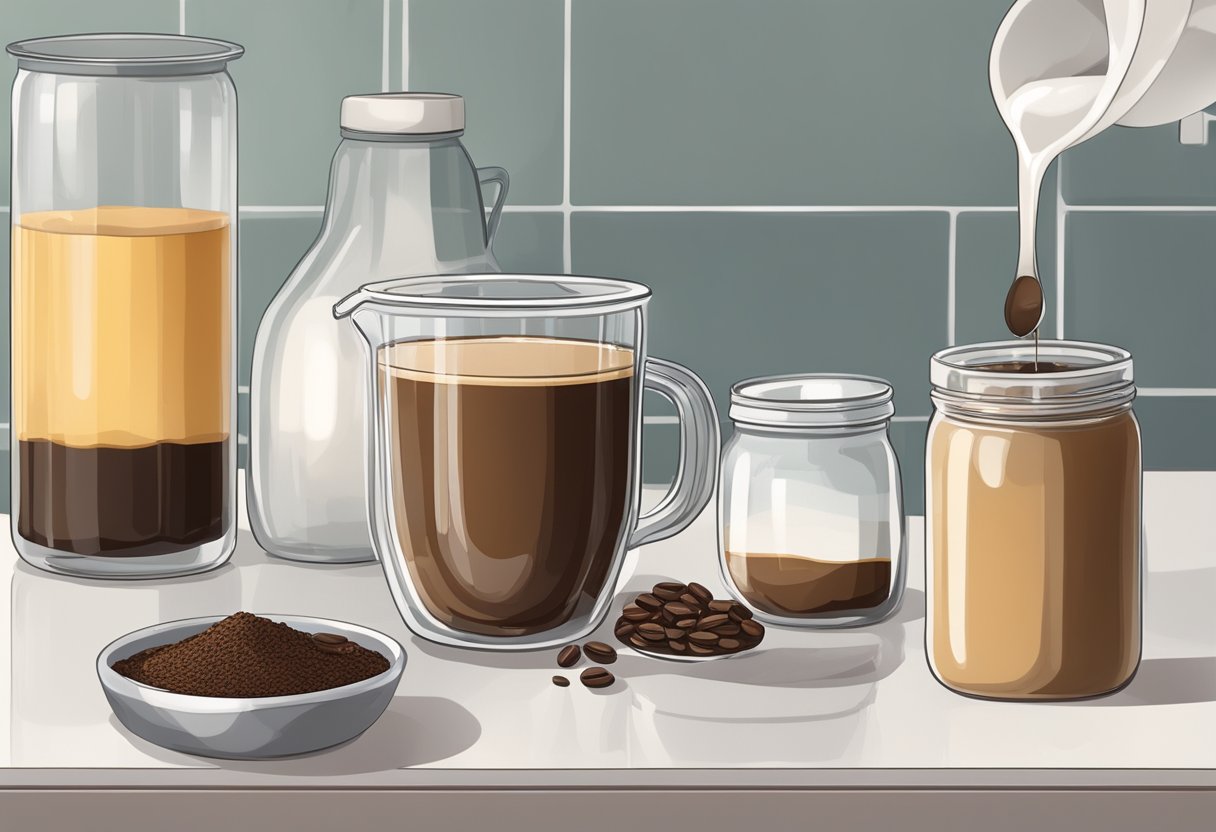
According to the USDA, there are approximately 28.3 milligrams of caffeine in every teaspoon (0.9 grams) of instant coffee. This means that a rounded teaspoon (the usual serving size of instant coffee) contains roughly 56.6 milligrams of caffeine. However, it is important to note that the caffeine content in instant coffee can vary depending on the brand and serving size.
It is important to keep in mind that the caffeine content in instant coffee is generally lower than that of regular brewed coffee. While a typical cup of brewed coffee contains around 95 milligrams of caffeine, a serving of instant coffee contains roughly half that amount. However, it is still important to monitor caffeine intake and be mindful of the amount consumed, especially for those who are sensitive to caffeine or have health conditions that may be affected by its consumption.
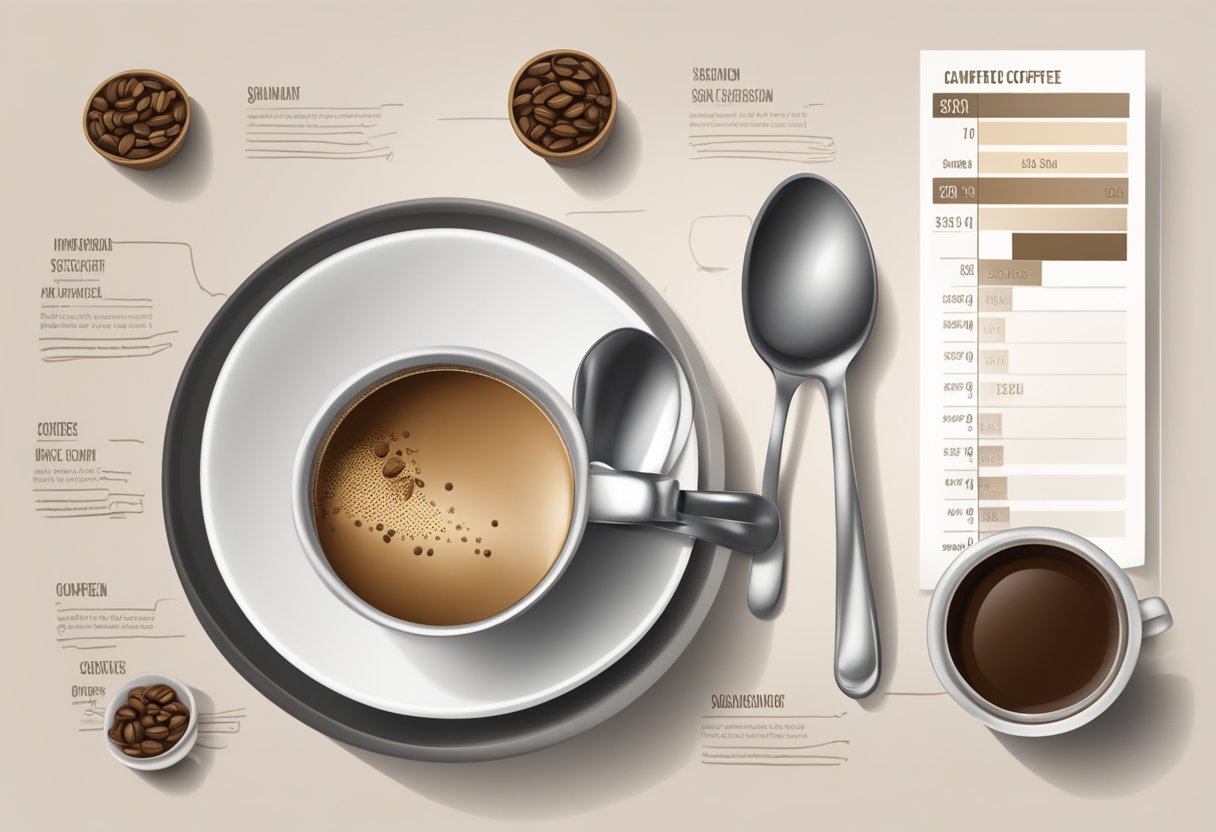
Instant coffee is a popular beverage choice for those who want a quick and easy caffeine boost. It is made by freeze-drying or spray-drying brewed coffee, resulting in a convenient powder form that can be quickly dissolved in hot water. One tablespoon of instant coffee typically contains around 30-90 milligrams of caffeine, depending on the brand.
When compared to other popular caffeine sources, such as brewed coffee, espresso, and tea, instant coffee typically contains less caffeine per serving. For example, a typical 8-ounce cup of brewed coffee contains around 70-140 milligrams of caffeine, while a 1-ounce shot of espresso contains around 30-50 milligrams of caffeine. A cup of tea contains around 20-60 milligrams of caffeine.
Decaf coffee, on the other hand, contains only a small amount of caffeine, typically less than 5 milligrams per 8-ounce cup. Energy drinks and soda can contain high amounts of caffeine per serving, ranging from 30-300 milligrams per can or bottle.
The caffeine content in instant coffee can vary depending on the brand and the serving size. For example, Starbucks Via instant coffee contains about 130-140 milligrams of caffeine per packet, while Nescafe instant coffee typically contains around 50-60 milligrams of caffeine per serving. Folgers instant coffee contains around 74 milligrams of caffeine per serving, while Death Wish Coffee Company's instant coffee contains around 60 milligrams of caffeine per serving.
It is important to check the label of your preferred brand of instant coffee to determine the exact caffeine content per serving. Some brands may also offer decaf instant coffee for those who want to avoid caffeine altogether.
Overall, instant coffee can be a convenient and easy way to get a caffeine boost, but it is important to be aware of the caffeine content and to consume it in moderation.
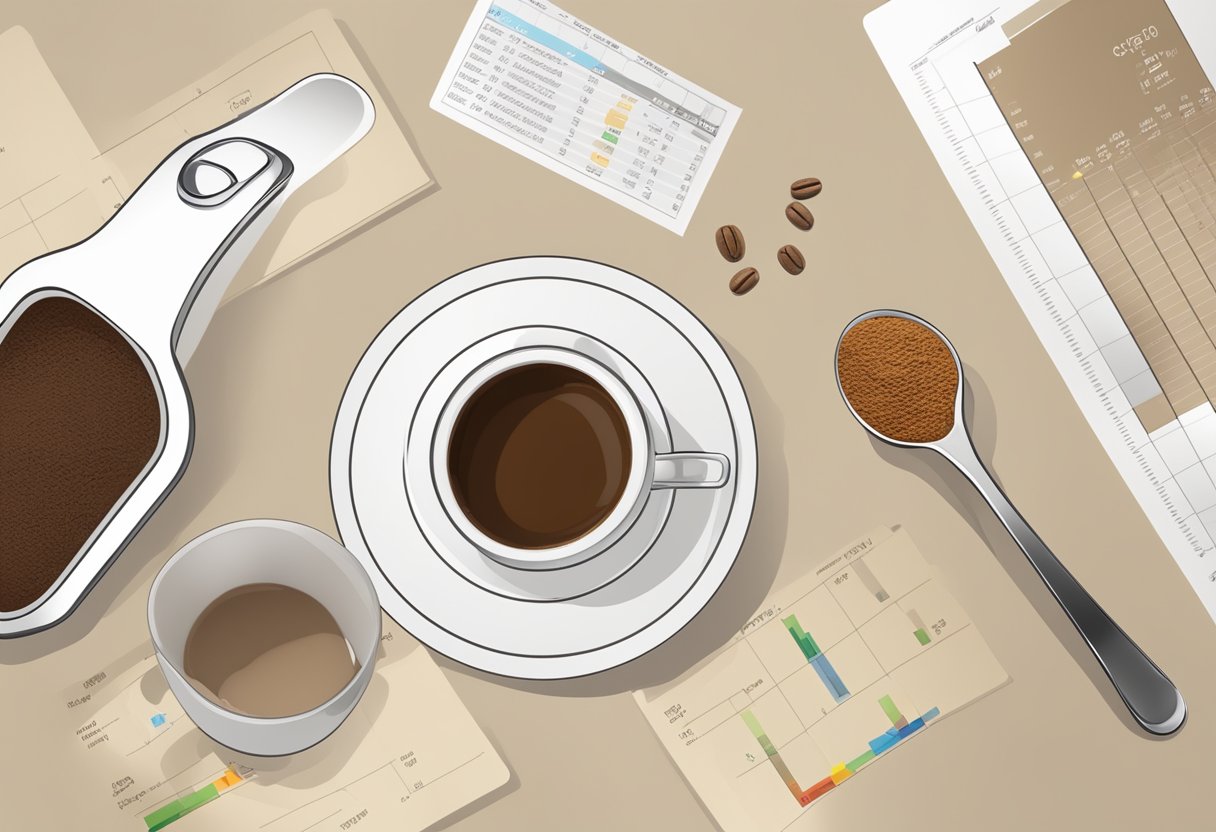
Caffeine content in instant coffee can vary depending on several factors. Here are some of the most significant factors that can affect the caffeine content in a tablespoon of instant coffee.
The preparation method of instant coffee can significantly impact the caffeine content. The amount of caffeine in a tablespoon of instant coffee can vary depending on the type of water used, the temperature of the water, and the brewing time. Using hot water to prepare instant coffee can result in a higher caffeine content compared to using cold water. The longer the brewing time, the higher the caffeine content.
The type of coffee beans used to make instant coffee can also affect the caffeine content. Different coffee beans have varying caffeine levels. For instance, Robusta beans have higher caffeine content than Arabica beans. The roasting process can also impact the caffeine content. Dark roast coffee beans tend to have less caffeine than lighter roasts.
In summary, the caffeine content in a tablespoon of instant coffee can vary depending on several factors such as the type of coffee beans used, the roasting process, and the preparation method. It is important to note that the caffeine content can vary from one brand to another, and therefore, it is essential to read the label to know the exact caffeine content.
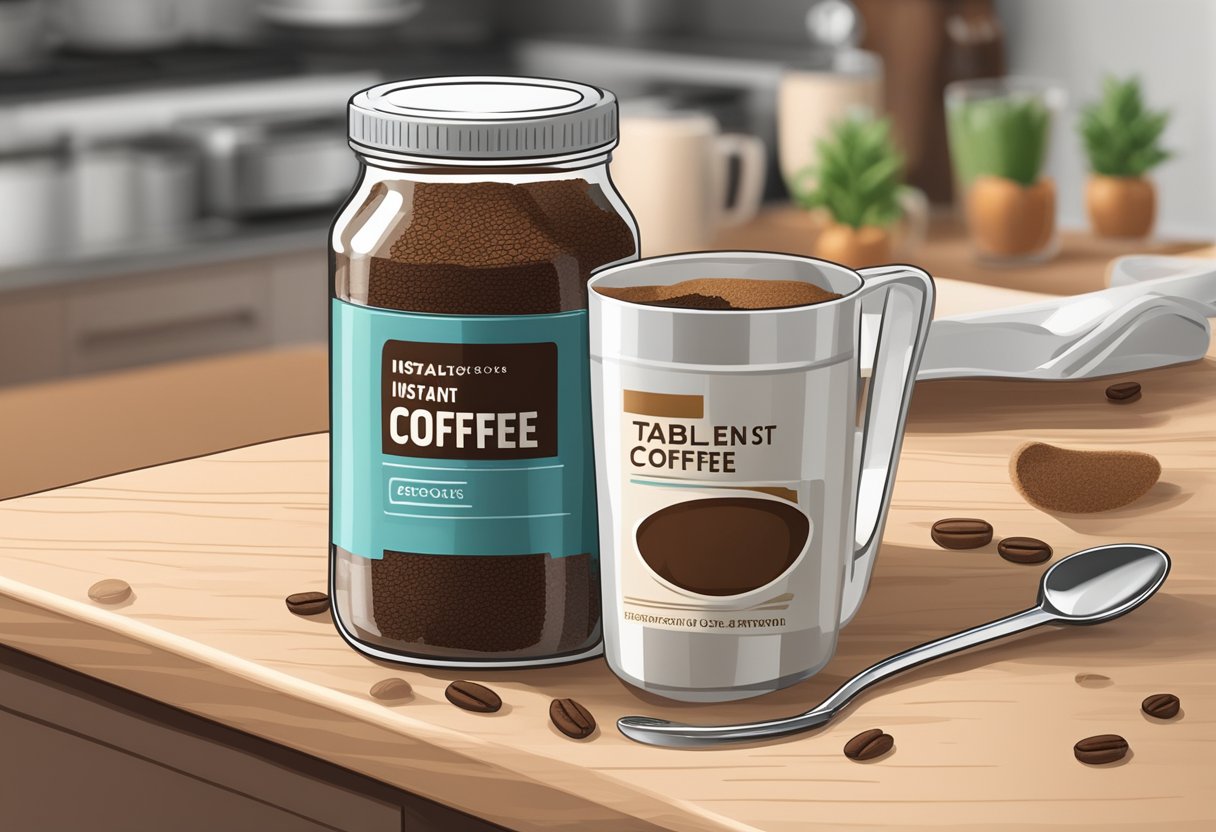
Caffeine is a stimulant that is widely consumed by people all over the world. While it can provide numerous health benefits, it can also have adverse effects if consumed in excessive amounts. In this section, we will discuss the implications of caffeine intake, including its health benefits and risks, and caffeine sensitivity.
Caffeine has been shown to have several health benefits, including increased energy levels, improved mental alertness, and enhanced physical performance. Additionally, it may help reduce the risk of certain diseases such as Parkinson's disease, Alzheimer's disease, and liver cancer.
However, excessive caffeine intake can lead to adverse effects such as anxiety, jitters, restlessness, insomnia, headaches, and heart palpitations. Pregnant women, in particular, should limit their caffeine intake as it can increase the risk of miscarriage and low birth weight.
The FDA recommends that adults consume no more than 400mg of caffeine per day, which is roughly equivalent to four cups of coffee. It is also important to note that the actual caffeine content in beverages can vary widely, so it is essential to read labels carefully.
Caffeine sensitivity varies from person to person, with some people being more sensitive to its effects than others. Individuals who are sensitive to caffeine may experience adverse effects such as anxiety, jitters, and heart palpitations even with small amounts of caffeine.
It is also important to note that caffeine can interfere with sleep, so it is best to avoid consuming it in the evening or before bedtime. If you have trouble sleeping, it is recommended that you limit your caffeine intake or avoid it altogether.
In conclusion, caffeine can provide numerous health benefits when consumed in moderation. However, excessive caffeine intake can lead to adverse effects, so it is essential to be mindful of your caffeine consumption. If you experience adverse effects from caffeine, it is best to limit your intake or avoid it altogether.
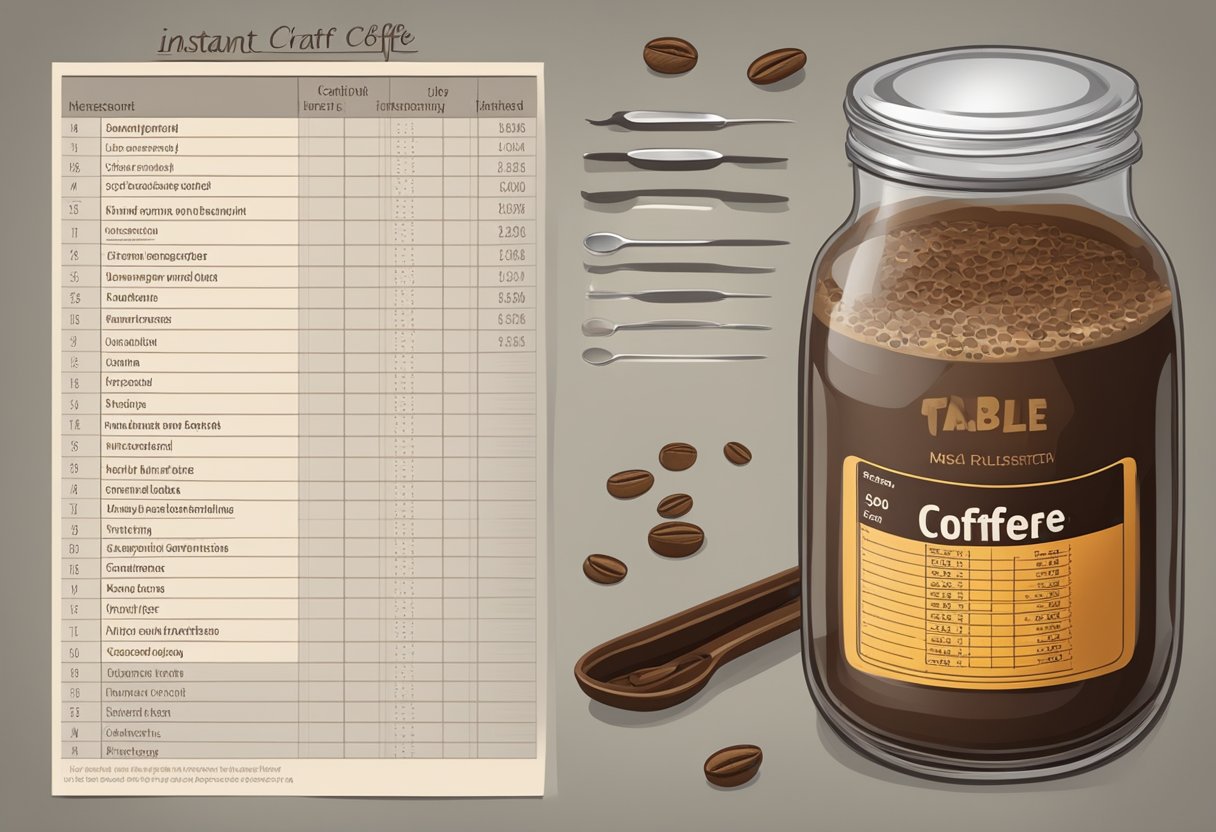
Decaffeinated coffee is a popular choice for people who love the taste of coffee but want to avoid the stimulating effects of caffeine. Decaf coffee is made by removing most of the caffeine from the coffee beans.
According to the search results, an eight-ounce cup of decaffeinated coffee contains between 2 and 15 milligrams of caffeine, which is significantly less than eight ounces of regular coffee, which contains 80 to 100 milligrams of caffeine. Decaf coffee has also been shown to cause significantly less acid reflux than regular coffee.
Decaf instant coffee contains small amounts of caffeine. The USDA food database shows that a rounded teaspoon (1.8 grams) of instant coffee powder has 2.2 mg of caffeine in it. They list an 8 fl oz prepared decaf coffee as having 2.4 mg caffeine.
Decaf coffee is a good choice for people who are sensitive to caffeine or who want to reduce their caffeine intake. It still provides the rich, full-bodied flavor of coffee without the jitters and other side effects that come with caffeine.